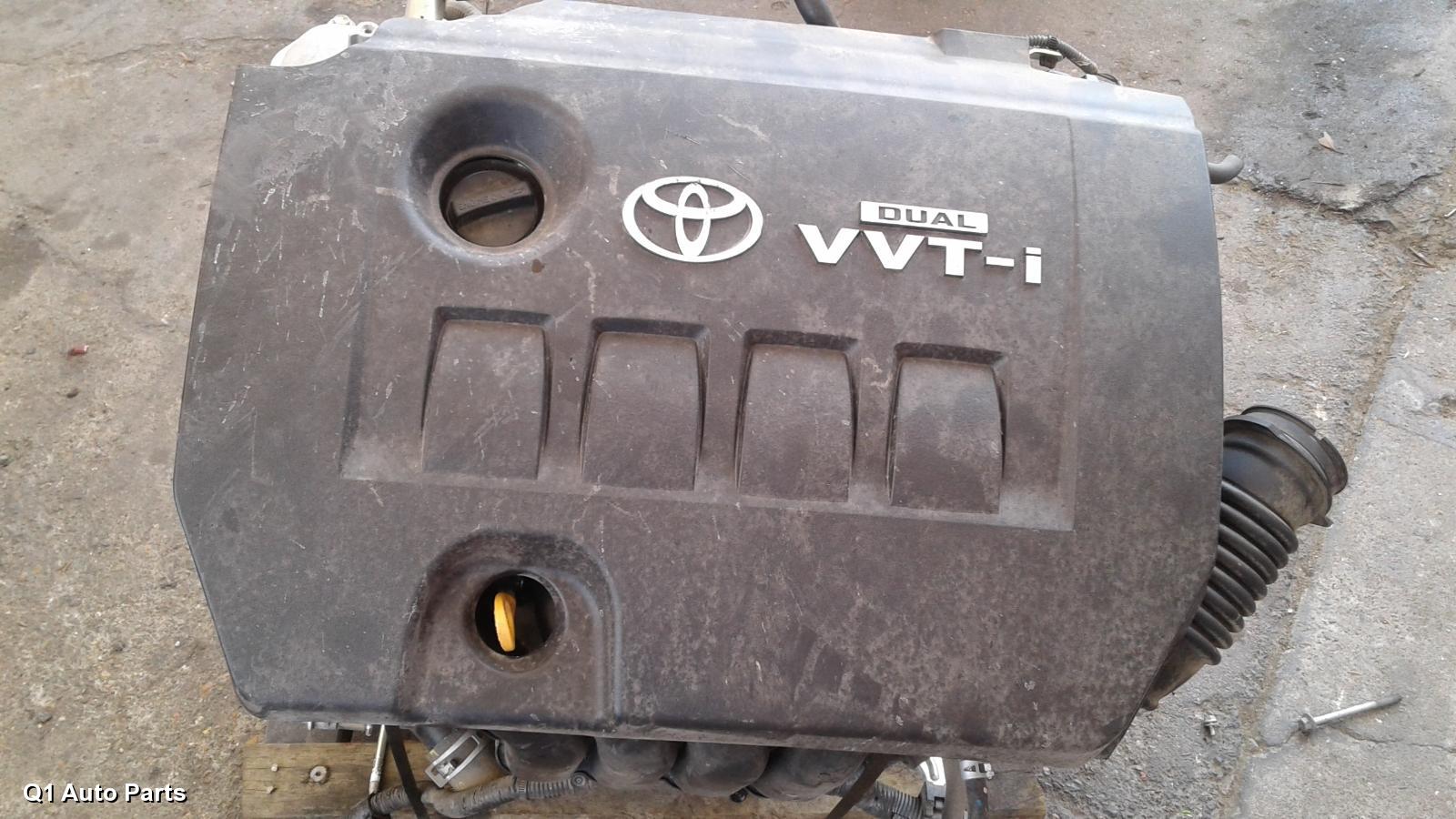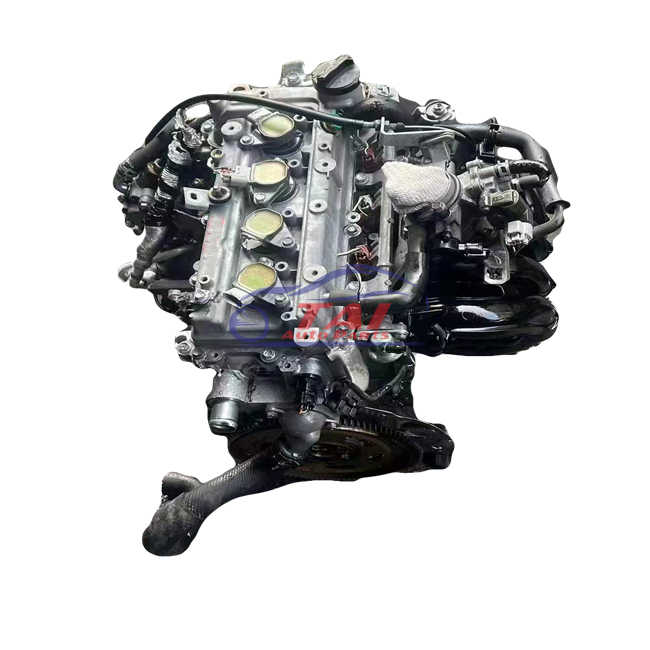The Background and Advancement of the Toyota RunX RSI in the Automotive Globe
The Background and Advancement of the Toyota RunX RSI in the Automotive Globe
Blog Article
Explore Top Quality and Worth: Your Guide to Buying a Pre-owned Engine
When taking into consideration the purchase of a pre-owned engine, understanding the detailed balance in between high quality and worth is critical. A complete examination of engine background, problem, and integrity is necessary to ensure a sound financial investment. By conducting proper assessments and research, potential purchasers can browse the complexities of the market more properly. The subtleties of guarantee alternatives and prices methods can substantially affect the total decision-making process. As you consider these elements, one inquiry remains: what particular elements will eventually assist your selection in this essential investment?
Comprehending Engine Types
When thinking about the purchase of a pre-owned engine, understanding of the various engine types is important for making a notified decision. Engines can generally be categorized into 2 major kinds: inner burning engines and electrical engines.
On the other hand, electric engines use electricity stored in batteries to power the automobile, providing a cleaner option with less relocating components and reduced maintenance needs. Within these groups, there are further distinctions, such as four-stroke versus two-stroke inner combustion engines, and different electric motor setups.
Understanding these differences is vital, as they impact performance, compatibility with existing automobile systems, and long-lasting functional costs. By acquainting oneself with the different types of engines readily available, prospective buyers can much better analyze their requirements and make options that align with their car's needs and their personal preferences.

Assessing Engine Condition
A detailed evaluation of engine problem is extremely important for anyone taking into consideration the purchase of a used engine. Begin with a visual evaluation; look for signs of oil leakages, corrosion, or any physical damages to the engine block. A clean engine is often a sign of great upkeep techniques, while excessive crud may suggest forget.
Following, evaluate the engine's elements, consisting of the timing belt, gaskets, and seals. Search for deterioration, as these components can be expensive to replace. Furthermore, examine the engine mounts, as damaged mounts may bring about vibrations and further mechanical problems.
A compression examination is important to assess inner engine health and wellness. Uniform compression throughout all cylinders indicates a properly maintained engine, whereas substantial disparities may point to internal damages or wear.
Paying attention to the engine during a startup can provide valuable insights; any unusual noises, such as rattling or knocking, may recommend deeper problems. Ultimately, if possible, request an examination run to assess performance under load. By thoroughly evaluating these factors, potential purchasers can make informed decisions and protect a high quality second-hand engine.
Monitoring Engine History
Recognizing the engine's background is essential for making an educated acquisition. Expertise of previous usage, maintenance records, and any kind of past problems can considerably influence the engine's dependability and long life. Start by requesting the vehicle recognition number (VIN) or engine serial number, which allows you to map the engine's background.
Make use of offered resources, such as Carfax or AutoCheck, to acquire a lorry background record. This record will certainly offer important understandings, including crash background, solution documents, and previous possession information. Toyota RunX RSI. Pay particular focus to any type of indications of extreme damages or repeated repairs, which may suggest underlying concerns
Inquire regarding maintenance regimens carried out on the engine. Normal oil adjustments, timing belt substitutes, and other safety nets mirror liable possession. Additionally, ask if the engine has undergone any adjustments, as non-standard alterations can impact efficiency and compatibility with your automobile.
Lastly, if feasible, look for confirmation from a relied you could try here on auto mechanic who can assess the engine's condition based upon its history (Toyota RunX RSI). This extensive investigation will aid you stay clear of possible challenges and make certain that your investment is beneficial and sound
Warranty and Return Policies
Buying a pre-owned engine frequently comes with varying service warranty and return plans that can substantially affect your choice. When thinking about a used engine, it is necessary to thoroughly assess the guarantee options supplied by the seller. Some vendors might provide restricted warranties that cover specific elements for a specified duration, while others may give even more thorough insurance coverage. Understanding the conditions and terms connected to these guarantees is important, as they can affect the long-lasting value and integrity of your acquisition.

Moreover, credible vendors often supply documentation that describes the guarantee and return process, making sure transparency. Always ask for this information prior to settling your acquisition. A distinct service warranty and return plan can provide assurance and protect your investment, making it an important part of the decision-making procedure when purchasing a pre-owned engine.
Discovering the Best Deals
When looking for the most effective deals on a used engine, it is crucial to conduct thorough study and compare rates from different sellers. Start by exploring online industries, auto forums, and regional salvage yards to collect an extensive understanding of the marketplace. Making use of cost comparison tools can enhance this process, highlighting affordable prices across different systems.

Take into consideration timing your acquisition tactically. Seasonal variations in need can influence costs, with certain times of the year supplying much better offers. In addition, be open to working out rates; lots of sellers might want to lower their asking price, particularly if the find out engine has been detailed for an extended period.
Verdict
In recap, acquiring a used engine necessitates a comprehensive assessment of high quality and worth. Reviewing engine condition via tests and inspections, validating its history, and understanding warranty and return plans are crucial steps.
When considering the purchase of a pre-owned engine, understanding of the different engine kinds is important for making an informed decision. Engines can normally be classified into two primary types: interior burning engines and electrical engines. Gas engines are usually lighter and rev higher, making them ideal for efficiency vehicles, while diesel engines are renowned for their torque and gas performance, often favored in heavy-duty applications.
A comprehensive analysis of engine problem is paramount for any individual considering the purchase of a second-hand engine. Begin by asking for the automobile identification number (VIN) or engine serial number, which allows you to trace the engine's history.
Report this page